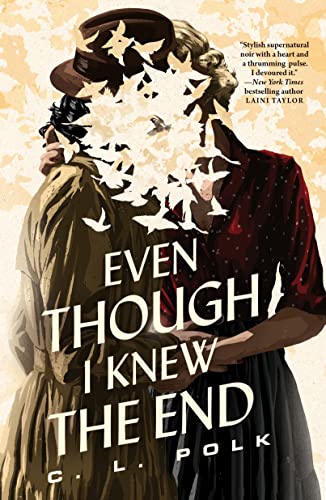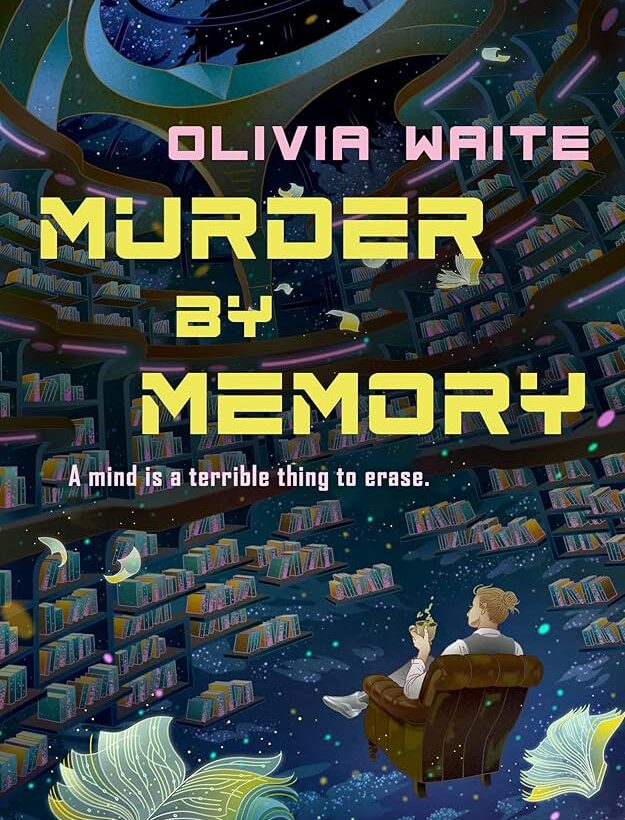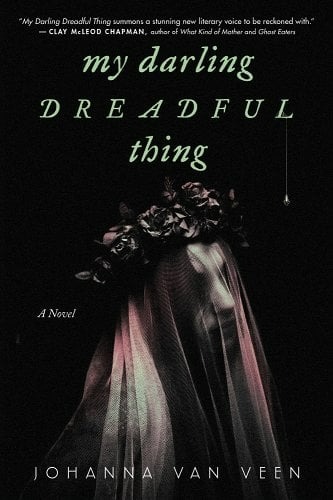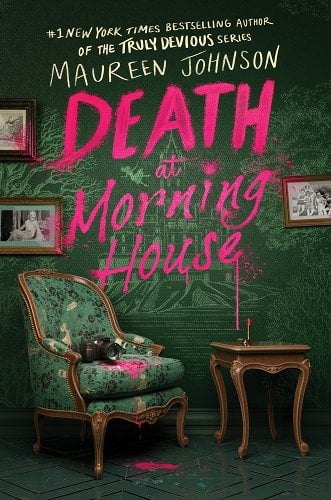In 1940s Chicago, a serial killer known as the White City Vampire spreads fear as everyone wonders who his next victim will be. Helen Brandt, an exiled magician deemed a warlock for her crimes against the Brotherhood, is on the case. But as the mystery unfolds, her past comes back to haunt her, and sheRead More
A Cozy Sci-Fi Murder Mystery: Murder by Memory by Olivia Waite Review
I was quite excited to get an ARC for Murder by Memory by Olivia Waite (on sale March 18!), because I am already a huge fan of her queer romances (Hen Fever is a DELIGHT). So when I heard her newest novella was not only sci fi, but a cozy murder mystery (two genres that I think need moreRead More
The Perfect Queer Gothic to Read on Halloween: My Darling Dreadful Thing by Johnna van Veen
I’ve been trying to spend the fall reading Gothic fiction, and as Halloween approaches, Johanna van Veen’s queer Gothic horror novel, My Darling Dreadful Thing (Poisoned Pen Press, 2024), is the perfect book for this time of year! Veen’s debut novel follows Roos Beckman in the 1950s. Roos has a spirit companion, Ruth, has been dead forRead More
A Chilling Summer Mystery: Death at Morning House by Maureen Johnson
This wasn’t a book I planned to read in just two sittings. However, after continuing to tell myself “I’ll take a break after this chapter” and then not taking a break after the chapter, I finished it in a blur of twists and reveals that left me gasping. Death at Morning House follows Marlowe Wexler,Read More
An Anxious Nonbinary Lesbian Sheep Solves a Murder: Bianca Torre Is Afraid of Everything by Justine Pucella Winans
Buy this from Bookshop.org to support local bookstores and the Lesbrary! Bianca has overwhelming anxiety, especially social anxiety, to the point that trying to have an everyday conversation is a monumental struggle. They keep a numbered list of fears, like “Fear #6: Initiating Conversation,” “#13 Beautiful People,” and “#11 Parents Discovering They’re a Raging Lesbian.”Read More
Sapphic Satanic Panic: Rainbow Black by Maggie Thrash
Bookshop.org Affiliate Link In her debut adult novel, Rainbow Black (March 19, 2024), Maggie Thrash (she/her), author of the critically acclaimed young adult graphic memoir Honor Girl, delivers a compelling, witty, and often moving account of Lacey Bond, whose life is forever changed when her parents are arrested and prosecuted for allegedly committing acts of ritualistic childRead More
An Anti-Capitalist Murder Mystery in Space: Stars, Hide Your Fires by Jessica Mary Best
Bookshop.org Affiliate Link You ever read something that you really really want to love but can’t? That was Stars, Hide Your Fires for me. I’m a huge sucker for political sci-fi/fantasy, and while I more often read heftier adult novels, I do occasionally browse the young adult section of my local bookstore. From the back-cover blurb toRead More
A Supernatural Noir Novella About Love at All Costs: Even Though I Knew the End by C.L. Polk
Bookshop.org Affiliate Link What would you give up everything for? If you knew you were doomed, would you keep fighting? In fewer than 140 pages, the award-winning Even Though I Knew the End by C. L. Polk posits these questions with a heroine whose love and determination propel her through a fast-paced investigation to catch a killerRead More
Maggie reviews A Restless Truth by Freya Marske
Amazon Affiliate Link | Bookshop.org Affiliate Link Last year, I was delighted by A Marvellous Light, a gay murder mystery/romance in which Robin, a newly-made Baronet, is appointed to the wrong government office and is accidently drawn into the hidden world of magical society when shadowy forces think he knows more than he does. With a curseRead More
Larkie reviews The Verifiers by Jane Pek
Amazon Affiliate Link | Bookshop.org Affiliate Link Claudia is a private detective, of a sort: she works for Veracity, an exclusive company that investigates people who are lying to their partners who they met through an online dating platform. When one of her clients shows up dead, she can’t help but dig into some ofRead More





